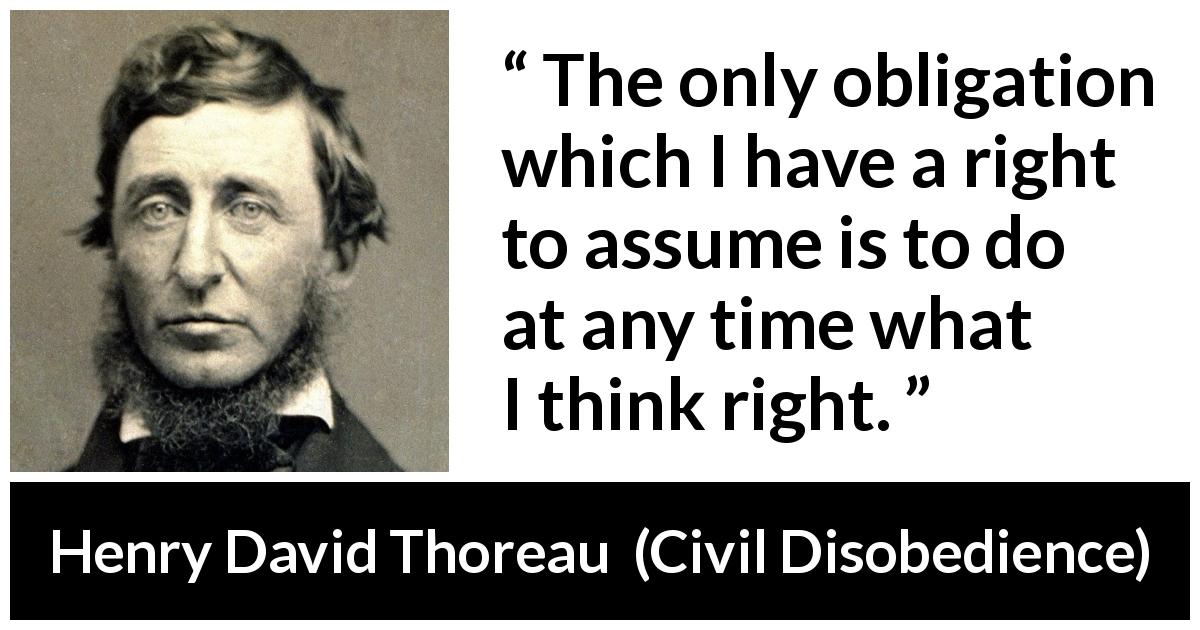

Hence, civil disobedience is sometimes equated with peaceful protests or nonviolent resistance. By some definitions, civil disobedience has to be nonviolent to be called "civil". NAE, 2016.Civil disobedience is the active, professed refusal of a citizen to obey certain laws, demands, orders or commands of a government (or any other authority). At this point, revolution is the way to reach authority and speak one’s mind. The writer claims that citizens’ interests and opinions should always be taken into account. Thoreau accentuates the necessity to transform the government system and fight for justice in his work. Thus, Henry David Thoreau believes that the government abuses its power, and it is time to put an end to such actions. This way the author emphasizes respect for people and recognizes their worth. According to Thoreau, there will not be a “free and enlightened state” unless the government acknowledges the importance of man (Thoreau 106). Legislators and officials operate as though the cosmos is governed by pragmatism. Lastly, Thoreau expresses his wish to follow the nation’s rules, yet current regulations are not ethical and acceptable from a broad perspective. Injustice will be restored only by society, not by the state’s systems. Only action, what the community does in response to the issue, is essential. The author advocates “peaceable revolution” after developing a vision of the state as a system that might not always do enough good deeds to offset the damage it causes (Thoreau 55). Thoreau explains the universal right to revolt and dwells on the beginnings of the American Revolution, which he considers less ethically appealing than the prevailing challenges in modern society. The authority is not always helpful, as seen in the Mexican-American War, which was the effort of a minority of men who exploited the power of government despite public opposition. Thoreau argues that it operates because the public has elected it to serve its interests, yet it is prone to abuse. In this sense, the government is merely a pragmatic force, a means to reach the goal.

The author advocates for the authority that does not interfere with the lives of citizens. Thoreau begins the work by stating that he agrees with the “motto” that “government is best which governs least” (Thoreau 5).


 0 kommentar(er)
0 kommentar(er)
